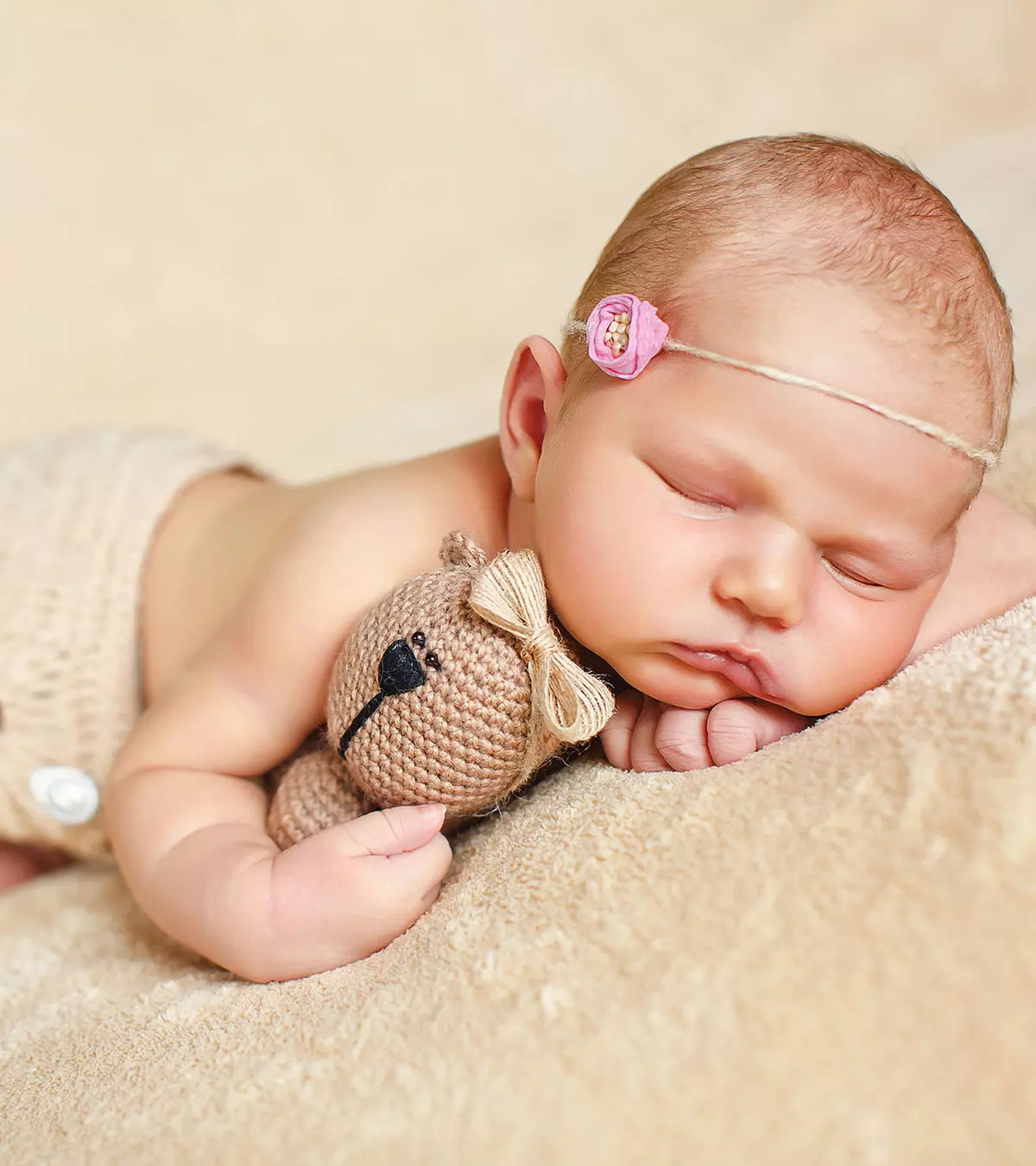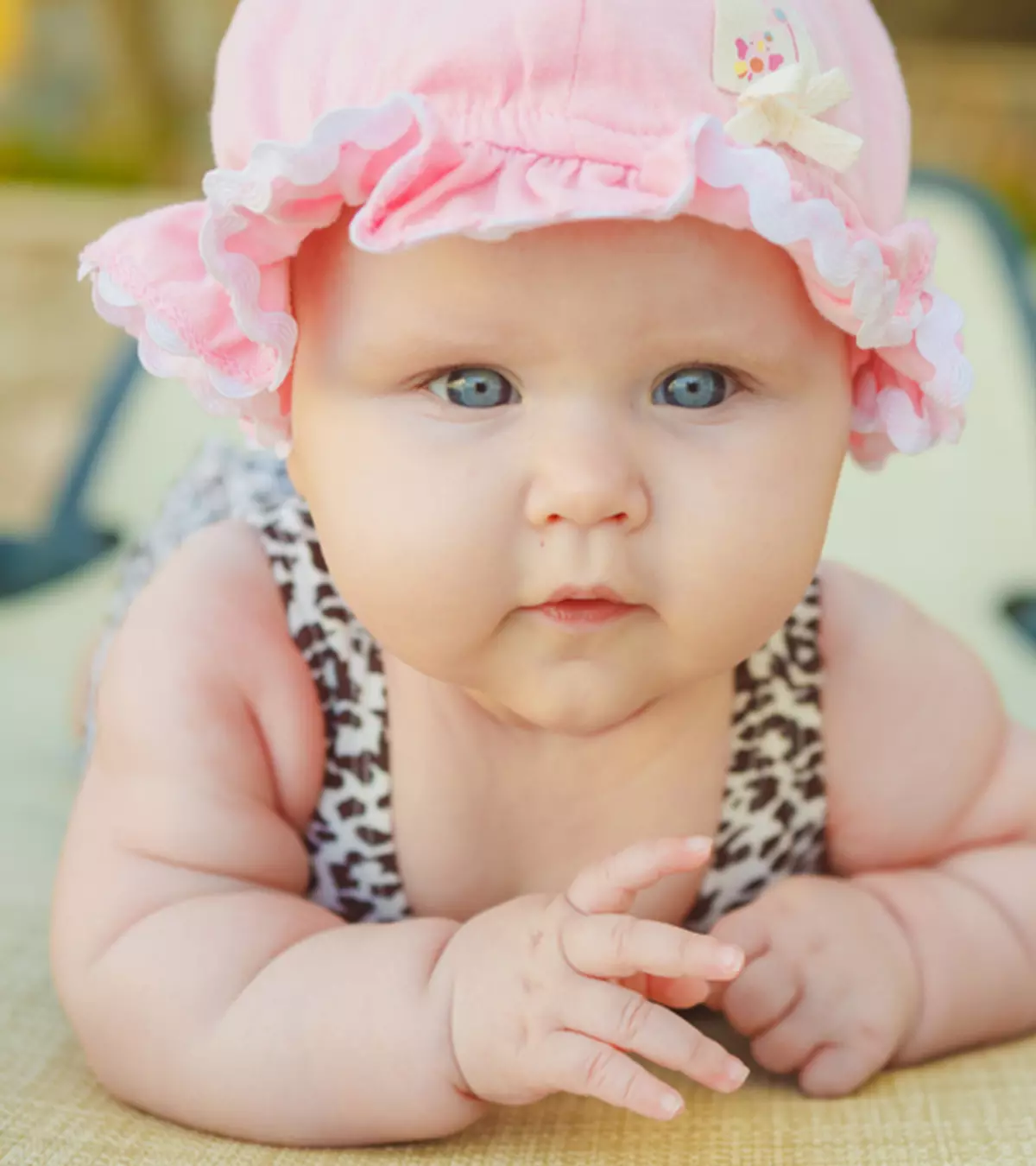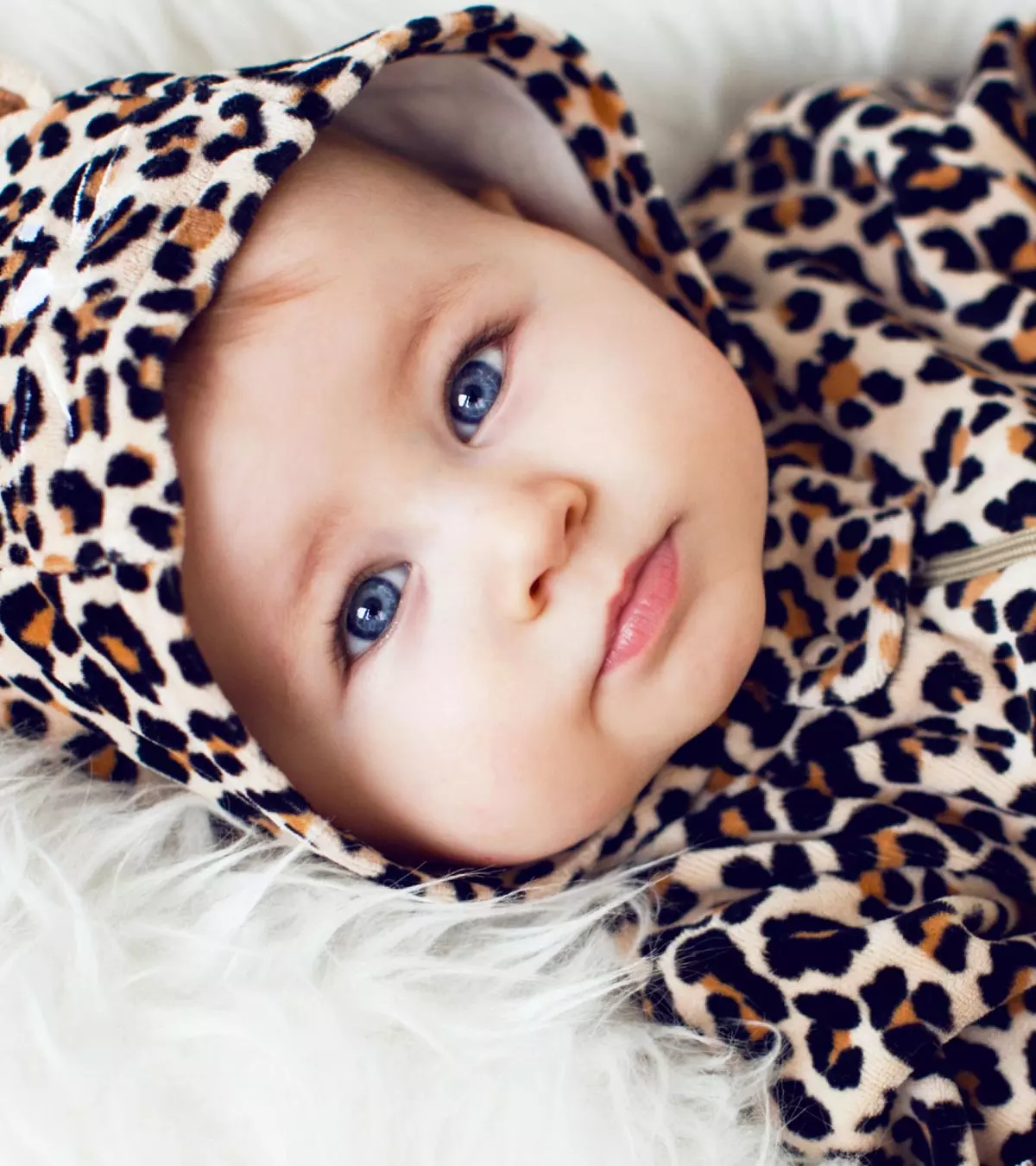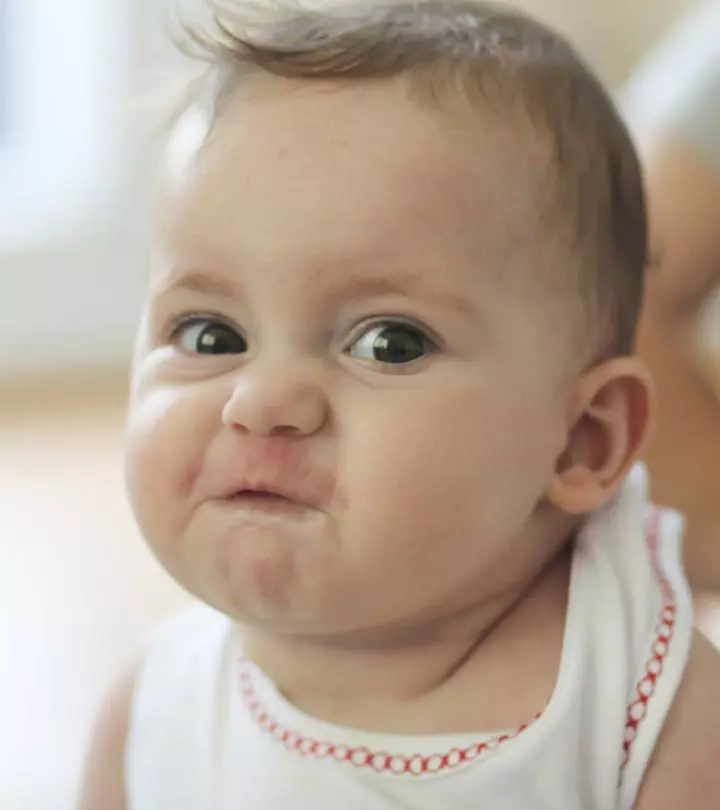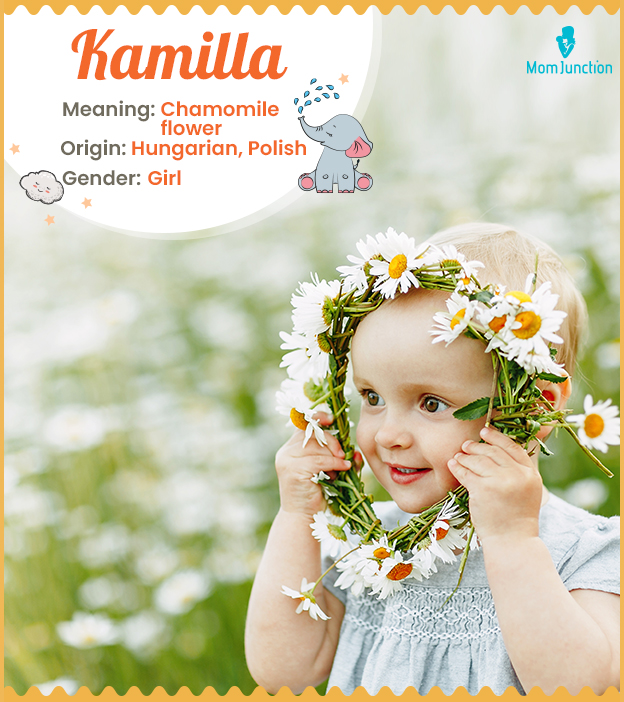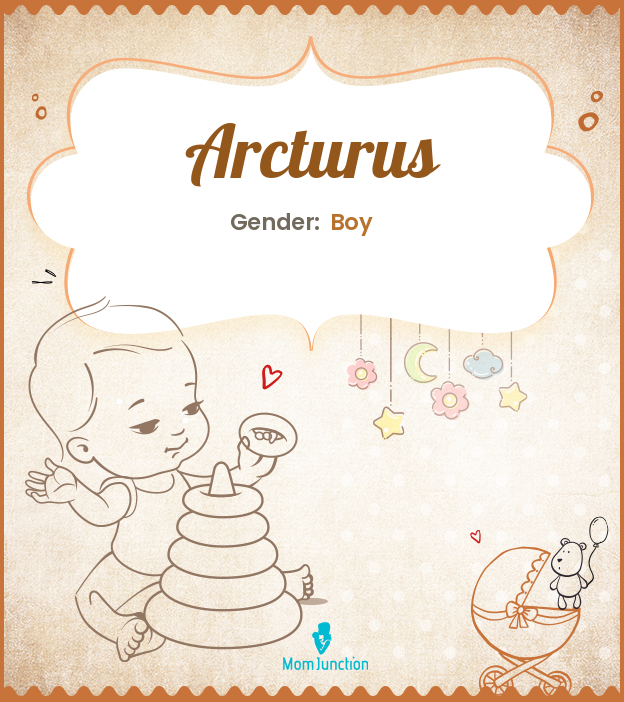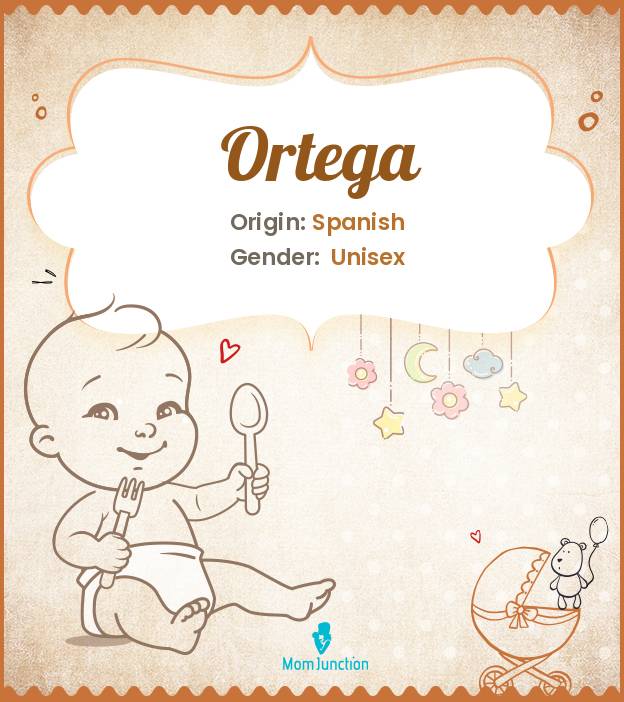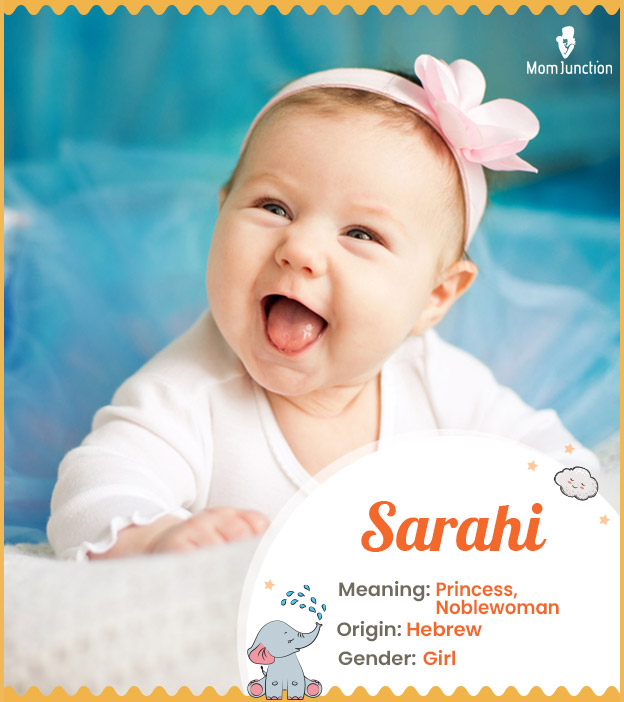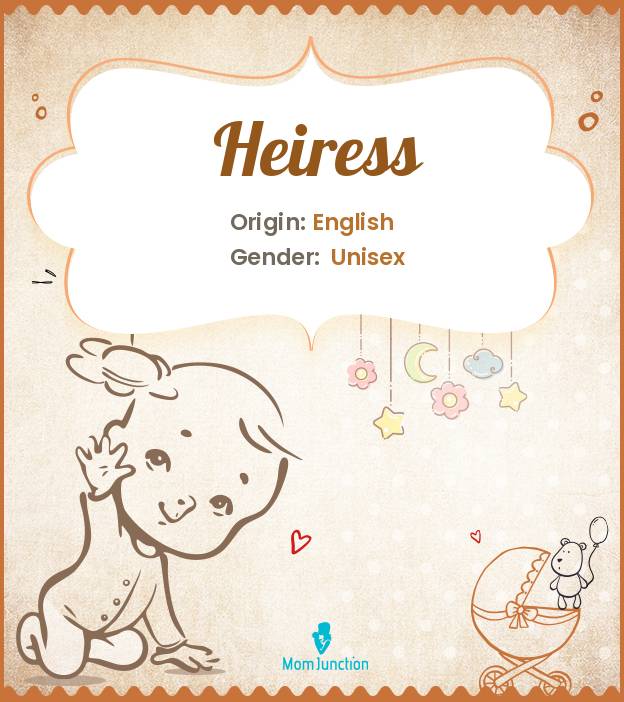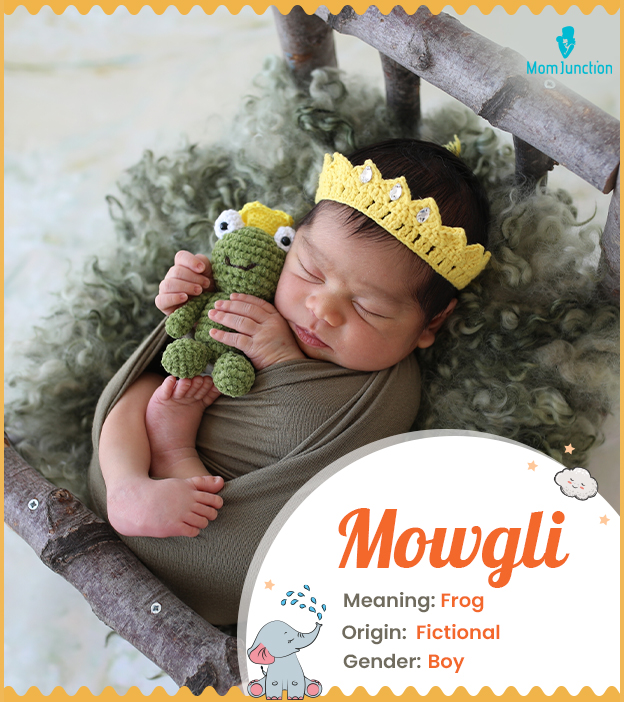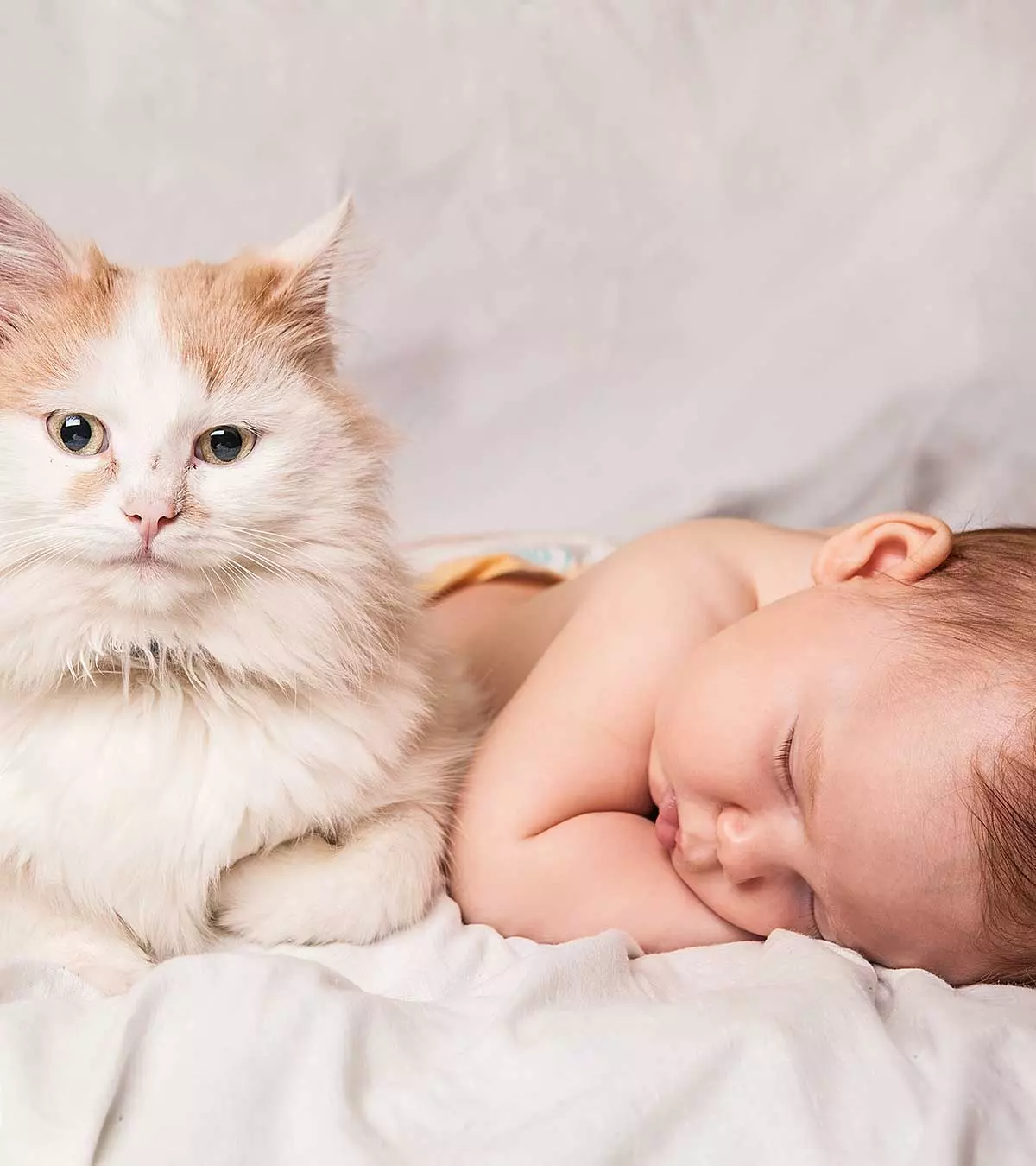
Image: Shutterstock
Scottish surnames reflect the rich history of Scotland and the various cultural influences, ranging from Celtic traditions to Norman introductions and beyond. Scottish surnames started to be used occasionally between the 10th and 12th centuries after the Normans introduced them in 1066. However, the frequency of use increased between the 18th and 19th centuries. Scottish last names have ethnic, habitational, topographical, occupational, and patronymic backgrounds. Some of these last names are believed to be the names of clans of powerful Scottish families that ruled the territory once. The list of their surnames can be found in the National Records of Scotland maintained by the Scottish government (1). We have explored multiple trusted websites and name databases to put together this list of Scottish surnames. Scroll down to learn their origins and meanings.

Key Pointers
- Scottish surnames,first introduced in the 10th and 12th centuries, became more common in the 18th and 19th centuries.
- Some of these surnames are thought to be associated with influential Scottish clans that historically governed particular territories.
- Some popular Scottish occupational surnames are Taylor and Miller.
- The prefixes Mc or Mac in Scottish surnames mean ‘son of,’ indicating the person’s paternal lineage.
List Of Popular Scottish Surnames Or Last Names
1. Abercrombie

This Scottish surname refers to Abercrombie, a place in Fife, a region in Scotland. Abercrombie means ‘confluence of rivers at a bend’ or the ‘mouth of the bendy river.’
2. Aitken
A popular Scottish surname, Aitken has a patronymic origin, and is derived from the name Adam. The word Adam comes from Hebrew and means ‘man.’
3. Alexander
The Scottish surname Alexander means the ‘protector/defender of mankind.’ The name/surname is derived from the famous Greek word ‘Alexandros,’ which means to ‘protect man’ or ‘defend man.’ As per Greek mythology, Alexander was ruler of Macedonia and conqueror of most of the known world in the fourth century BCE (2).
4. Allan/Allen
The name likely comes from the Old Gaelic word ‘ail’ that means ‘rock.’ The name ‘Allan’ or ‘Allen’ likely means ‘little rock.’ Another meaning of the name is considered to be ‘handsome.’
5. Anderson
Anderson is a patronymic surname that means ‘son of Andrew’ (3). The name Andrew is derived from the Greek name Andreas, which means ‘manly’ or ‘masculine.’
 Quick fact
Quick fact6. Archie
Archie is a shorter version of the name ‘Archibald,’ which either means ‘holy prince’ or the ‘bold prince.’
7. Arthur
The name derives from Old Celtic elements ‘artos,’ meaning ‘bear,’ and ‘viros,’ meaning ‘king.’ The name likely refers to the warrior Arthur who, with divine aid, led the Britons to victory against the Saxon invaders (4).
8. Auchter
Auchter is a habitational name derived from a few places named Auchter in Scotland. The name could also be a toponymic one derived from the Gaelic word ‘uachdar’ meaning ‘upland.’
9. Barclay
The surname Barclay is a habitational name that means ‘birch wood’ in Old English. The surname could also be a toponymic one referring to someone who originally belonged to a town named Berkeley situated in the Gloucestershire region of England.
 Trivia
Trivia10. Bell
The surname Bell has multiple origins. One theory suggests it comes from the Middle English word ‘belle,’ meaning bell. Another possibility is that it originated as the baptismal name Firsbell, meaning ‘son of Bel,’ with Bel being a shortened form of Isabel or Elizabeth (5). Alternatively, it could have been a nickname for someone who lived near the town bell.
11. Black
It is derived from the Middle English word ‘blake.’ The name likely referred to those with a dark complexion or those with dark hair. The name may also have been an occupational one for those who made black dye.
12. Blackwood
A Scottish and English surname, Blackwood is a habitational name for someone from any of the several places named Blackwood in Scotland. The surname originates from the Old English word ‘blake wudu’ meaning ‘dark wood.’
13. Boyce
The name is derived from the Old French word ‘bois’ that means ‘wood.’ The name is likely a toponymic one referring to someone who lived near the woods that is close to a forest.
14. Bran
The surname Bran comes from the Gaelic word ‘bran,’ meaning ‘raven.’ It probably refers to the Celtic god Bendigaidd Fran, one of the High Gods of the Celtic pantheon and a Raven god of battle (6).
15. Braid
A habitational origin, the surname refers to those originally belonging to a place called Braid situated in South Edinburgh in Scotland.
16. Brown
Brown is a frequently used Scottish and English surname. Brown was likely a byname or nickname used to refer to someone with a dark reddish complexion or someone with brown hair.
17. Burns
It is a toponymic name for a person who resides by a stream. The name likely originates from the Old English word ‘burne’ that means ‘stream.’
18. Butchart
A surname of Anglo-Saxon origin, Butchart is derived from the personal name ‘Burgheard.’ This name is a combination of the Old English words ‘burgh’ meaning fortress and ‘heard’ meaning ‘brave.’
19. Cameron
The name is derived from the Gaelic phrase ‘cam sron’ meaning ‘crooked nose.’ The name would have been a nickname for someone with a crooked or broken nose.
20. Campbell
The Scottish surname is derived from the Gaelic phrase ‘cam beul’ meaning ‘crooked mouth.’ The name was likely a nickname for someone with a wry or crooked mouth.
 Quick fact
Quick fact21. Cairns
It originates from the Gaelic word ‘carn,’ which means cairn, a heap of rough stones raised as a landmark or a memorial. The name is a toponymic one referring to those who lived by a cairn.
22. Christie
A patronymic name, the Scottish surname Christie means ‘son of Christopher’ or meant ‘Christ bearing.’
23. Craig
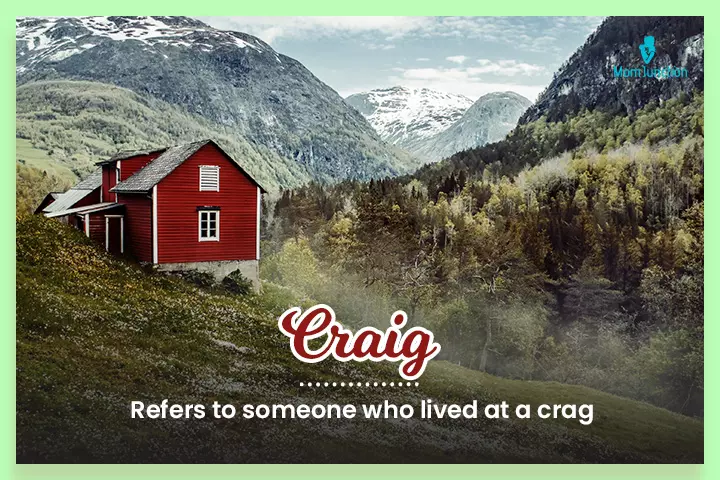
Craig is a toponymic surname derived from the Gaelic word ‘creag’ that means ‘crag’ or a ‘rock.’ The name likely referred to those who lived at a crag, a projection of a rocky hill.
24. Crawford
It comes from a combination of two Old English words ‘crawa’ meaning ‘crow’ and ‘ford’ meaning ‘river crossing.’ The name is a toponymic one as well, referring to someone from any of the several places called Crawford in Scotland and England.
25. Cunningham
It is a toponymic name for someone who came from an old place called Cunningham in Scotland. The name is likely derived from the Gaelic word ‘cuinneag’ meaning a ‘milk pail.’
26. Davidson
It is a patronymic name, which means ‘son of David.’ The name David in Hebrew means ‘beloved,’ thus Davidson could also mean ‘beloved son.’
27. Dickson
It is a patronymic name that means ‘son of Dick.’ The name Dick is a shorter form of Richard, which means ‘brave ruler.’
28. Docherty
It is the Scottish variation of the Irish surname Doherty. The surname Doherty likely comes from the Gaelic word ‘Dochartach’ meaning ‘stern’ or ‘hurtful.’ The name was likely a nickname.
29. Donaldson
It is a patronymic name that means ‘son of Donald.; The name Donald comes from an Old Gaelic name ‘Domhnall’ that means ‘ruler of the world.’
30. Duncan
It is an Irish and Scottish surname. Duncan is derived from the Old Gaelic personal name ‘Donnchadh’ that comprises the Gaelic words ‘donn’ meaning ‘brown’ and ‘cath’ meaning ‘battle.’ The name likely referred to a dark-haired warrior
31. Dunsmore
It is a toponymic name referring to someone from a long-forgotten Scottish place called Dunsmore or Dundemore.
32. Elgin
It is a toponymic name for someone who originally belonged to a place called Elgin, situated in Moray region of Scotland. This Scottish clan surname is popular in the US (7).
33. Falconer/Faulkner
It is derived from Middle English and means ‘falcon-keeper.’ The surname has an occupational origin and was used for individuals who owned and trained falcons.
34. Falla
It is a toponymic name for someone from a place called Fala located in the Midlothian council area of Scotland.
35. Ferguson
Ferguson has a patronymic origin and means ‘son of Fergus.’ The name Fergus originates from the Gaelic word ‘Fearghas,’ which comprises the Gaelic elements ‘fear’ meaning ‘man’ and ‘gus’ meaning ‘vigor.’ The name is also associated with Fergus mac Róich or Fergus son of Roach, a key figure in the Ulster cycle in Irish mythology (8).
36. Findlay
The roots of the surname Findlay can be traced to the surname Findlalech, which was the patronymic last name of Mac Bethad mac Findláech, more commonly known as King Macbeth (9). It means ‘white or fair hero.’
37. Fowler
It is an occupational surname for someone who was a keeper of fowls or a birdcatcher. The name likely originates from the Old English word ‘fugelere’ that means birdcatcher.
38. Forbes
It is a toponymic name referring to someone from a place called Forbes located near Aberdeen in Scotland. The word Forbes is derived from the Gaelic word ‘Forba’ meaning a ‘field.’
39. Gibson
It is a patronymic name that means ‘son of Gib.’ The name Gib is a shorter form of the name Gilbert, which comes from Old German and means ‘bright pledge.’ Interestingly, ‘Hoot’ is a popular nickname to go with Gibson.
In an interview for Nasa’s JSC Oral History Project, astronaut Robert L. Gibson (nicknamed Hoot Gibson), explains how he got his nickname. He says, “It’s a very unoriginal nickname. I’m very fond of saying I got it because of the expression “not worth a hoot,” but in actuality, it was from the cowboy movie star of the 1930s, who was called Hoot Gibson. If your last name is Gibson, you’re most likely going to get “Hoot” for a nickname. I have known several others. My dad told me that when he was younger, it was one of his nicknames. He would get called Hoot Gibson (i).”
40. Gilchrist
It is derived from the Old Gaelic phrase ‘giolla Chriost’ that means ‘servant of Christ.’
41. Gilmore
In Scotland, Gilmore is the shortened Anglicized form of the Gaelic name ‘Mac Gille Mhoire,’ or ‘Mac Giolla Mhuire,’ which means ‘servant of (the Virgin) Mary.’
42. Gordon
It is a toponymic name for someone from a place called Gordon located in the Berwickshire region of Scotland. The name Gordon is made from the Welsh elements ‘gor’ meaning large or spacious, and ‘din’ meaning ‘fort.’
 Trivia
Trivia43. Gray
The name likely came from English and was used as a nickname for someone with grey beard, hair, or clothes.
44. Graham
It is a toponymic name referring to someone who originally belonged to a place called Grantham in England. The name Grantham likely comes from Old English and means ‘gravelly homestead.’
45. Grant
The name likely comes from the Norman-French word ‘graunt’ or ‘graund’ that means large or tall. The surname was likely used as a nickname for someone who had a large build or had a tall stature.
46. Hamilton
It is a toponymic surname referring to someone who comes from any of the several places called Hamilton in the UK. The name Hamilton comes from the Old English words ‘hamel’ meaning ‘crooked’, and ‘dun’ meaning a ‘hill.’
47. Henderson
It means ‘son of Hendry or Henry.’ The name Hendry or Henry comes from the Old German name ‘Heimirich’ that means ‘ruler of the home.’
48. Hill
The surname is a toponymic one and was indicative of individuals who resided by or on a hill.
49. Hughes
It is derived from the name Hugh, which comes from an Old Anglo-Norman name ‘Hug’ that meant ‘heart’ or ‘mind’ or ‘spirit.’
50. Innes
It is a toponymic name for someone who came from the clan of Innes that belonged to Moray, a county in Scotland. The name Innes has its origins in the Gaelic word ‘inis,’ that means ‘island.’
51. Jamieson
It is a surname that means ‘son of James.’ The name James comes from the Hebrew name ‘Yaaqov’ that means the supplanter or the substitute.
52. Jack
It is a medieval era variant of the name John, which comes from the Hebrew name ‘Yochanan’ meaning ‘God is gracious.’
53. Johnston
It is a toponymic name for someone from a place called Johnstone in Scotland. The surname is a combination of the Middle English words ‘John’ referring to someone named John, and the word ‘toun’ meaning ‘town.’
54. Jones
It is an old variant of the name John. The name John has its origin in the Hebrew name ‘Yochanan’ that means ‘God is gracious.’
55. Kendrick
It is the shorter form of the name McKendrick, which is an Anglicized form of the Gaelic name ‘Mac Eanraig’ meaning ‘son of Henry.’ The name Henry comes from the Old German name Heimirich, meaning ‘ruler of the home.’
56. Kerr
It comes from the Scottish Gaelic word ‘Kerr’ meaning ‘wet and rough ground.’ The name would have been a toponymic one referring to those who lived close to an area with a constant wet ground.
57. Kelly
It is a toponymic name for someone from a few places named Kelly in Scotland. The word Kelly is likely derived from the Cornish language word ‘coille’ meaning a ‘grove.’
58. Kenneth

The surname originates from ‘Coinneach,’ a Gaelic personal name that means ‘handsome.’ The name is associated with Cináed mac Ailpin or Kenneth I, the first King of Scots (10).
59. Lawson
It is a patronymic name that means ‘son of Laurence.’ The name Laurence comes from an Old Roman name ‘Laurentius’ meaning from Laurentum, which was a city in Ancient Italy.
60. Leishman
It means ‘servant of Leish.’ The name Leish is a variant of the name ‘Gillis’ which is a shorter form of the Gaelic name ‘Mac Gille Iosa’ meaning the ‘son of the servant of Jesus.’
61. MacDonald/McDonald
It is a patronymic name that means ‘son of Donald.’ The name Donald comes from the Gaelic name ‘Domhnall’ meaning ‘ruler of the world.’
 Did you know?
Did you know?62. Mackay
A common Scottish and Northern Irish surname, ‘Mackay’ originates from the Gaelic name ‘Mac Aodha,’ meaning ‘son of Aodh.’ ‘Aodha’ or ‘Aodh’ is the name of an Irish god of the underworld (11).
63. Marshal
It is derived from the Old English word ‘mareschal,’ which comes from Old German elements ‘marah’ meaning ‘horse’ and ‘scalc’ meaning ‘servant.’ The name Marshal was likely a title for someone who was a stable owner or someone who loved horses.
64. Martin
The surname Martin originates from ‘Martinus,’ a Latin name derived from ‘Martis,’ which was the name of the Roman God of ‘Mars.’
65. McGregor
It originates from the Gaelic name ‘Mac Griogair,’ meaning ‘son of Griogar.’ The name ‘Griogar’ is derived from the personal name ‘Gregory,’ which comes from the Old Greek name ‘Gregoros’ meaning ‘watchful’ or ‘alert.’
66. McIntyre
McIntyre originates from the Gaelic name ‘Mac an tSaoir,’ which means ‘son of a craftsman.’
67. McIntosh
It is the Anglicized version of the Gaelic name ‘Mac an Toisich,’ which means ‘son of the chief.’
68. McKenzie
The surname originates from the Gaelic name ‘MacCoinnich’ meaning ‘son of Coinneach.’ The name Coinneach comes from the Old Gaelic word ‘caoin’ meaning ‘handsome.’
69. McLean
McLean is an Anglicized form of the Gaelic name ‘Mac Giolla Eoin’ meaning ‘son of the servant of Eoin.’ The name Eoin is a variant of the name John, which comes from the Hebrew name ‘Yochanan’ meaning ‘God is gracious.’
70. McLeod
It comes from the Gaelic name ‘Mac Leoid’ meaning ‘son of Leod.’ The name Leod comes from the Old Norse personal name ‘Ljotr’ meaning ‘ugly.’
71. McMillan
McMillan originates from Gaelic ‘Mac Maolain,’ a name of patronymic origin derived from the byname ‘Maolan.’ This name is derived from the Gaelic word ‘maol’ meaning bald.
72. Millar
It is a variant of the name Miller, which is an occupational name for someone who worked as a miller or as a mill keeper.
73. Miller
Miller has an occupational origin and refers to someone who worked as a miller, an individual who grinds grains in a mill for a living.
74. Milne
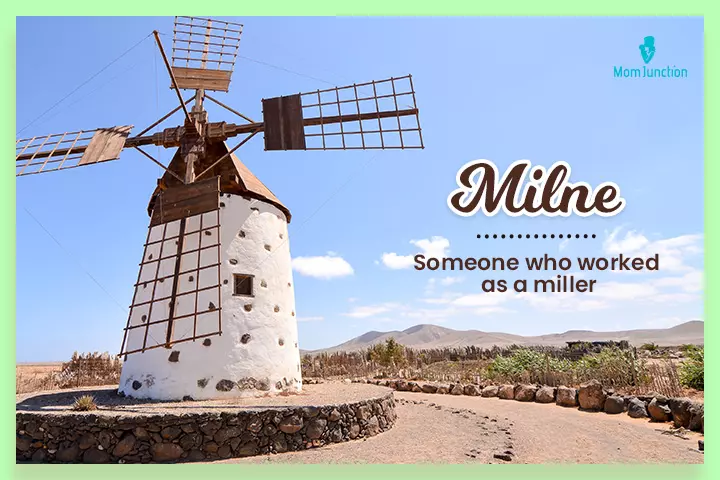
The name is derived from the Middle English word ‘milne’ that means mill. The surname Milne is an occupational one and would have referred to someone who worked as a miller.
75. Mitchell
The surname originates from the personal name Michel, a vernacular form of Michael. The name Michael comes from the Hebrew name ‘Mikhael,’ meaning ‘who is like God.’
76. Morrison
It means ‘son of Morris.’ The name Morris is probably a variant of the name Maurice (12). Maurice comes from the Old Latin name ‘Maurus’ that referred to someone who was dark-skinned or swarthy.
77. Murray
Murray is a toponymic name and refers to someone who originally belonged to a place called Moray in Scotland. The name Moray comes from Celtic language and means ‘sea settlement.’
78. Muir
Muir originates from the Middle English word ‘More’ referring to a ‘fen’ or ‘moor.’ The name is a toponymic one referring to individuals who lived on a moor.
79. Murphy
The surname Murphy is derived from the Gaelic ‘O Murchadha’ or ‘Mac Murchadha,’ both originating from the word ‘murcadh,’ which means ‘sea warrior.’
80. Napier
It is an occupational name that means ‘cloth keeper’ or ‘linen keeper’ in Middle English. The name traces its origins to the Old French word ‘nappe’ meaning a table cloth.
81. Owen
It is derived from the Gaelic name ‘Mac Eoghain,’ meaning ‘son of Eoghain.’ The name Eoghain is likely a variant of the name Eugene, which comes from the Old Greek name ‘Eugenes,’ meaning ‘well-born.’
82. Paterson
It is a patronymic name that means ‘son of Patrick.’ The name Patrick comes from the Old Latin name Patricius meaning a ‘nobleman.’
83. Reilly
A diminutive form of ‘O Reilly,’ which is a shorter form of the Gaelic name ‘O Raghailligh,’ meaning ‘descendant of Raghailleach.’ The name Raghailleach likely has an Irish origin.
84. Robertson
It means ‘son of Robert.’ The name Robert comes from an Old German name ‘Hrodebert’ that means ‘bright fame,’ referring to someone who was very popular or famous.
85. Ross
It is a toponymic name referring to someone from any of the several places called Ross in Scotland. The name Ross comes from the Gaelic word ‘ros,’ which refers to a headland or promontory – a rock projecting into the sea beyond the coastline.
86. Ritchie
Ritchie is a short form of the personal name ‘Richard.’ The name Richard comes from Old German and means ‘brave ruler.’
87. Russel
Russel is derived from ‘Rousel,’ an Anglo-Norman French nickname referring to someone with red hair or one with a ruddy complexion.
88. Shaw
The name likely originated from the Gaelic word ‘sithech’ that means ‘wolf.’
89. Simpson
It means ’son of Sim.’ The name Sim is a shorter form of the name Simon, which comes from the Hebrew name ‘Shimon’ meaning ‘he has heard.’
90. Sinclair
It is a toponymic surname that originally referred to those who belonged to the old Norman French town of Saint Clair. The name Clair comes from the Late Latin name ‘Clarus,’ which means ‘pure,’ ‘renowned,’ or ‘illustrious.’
91. Taylor
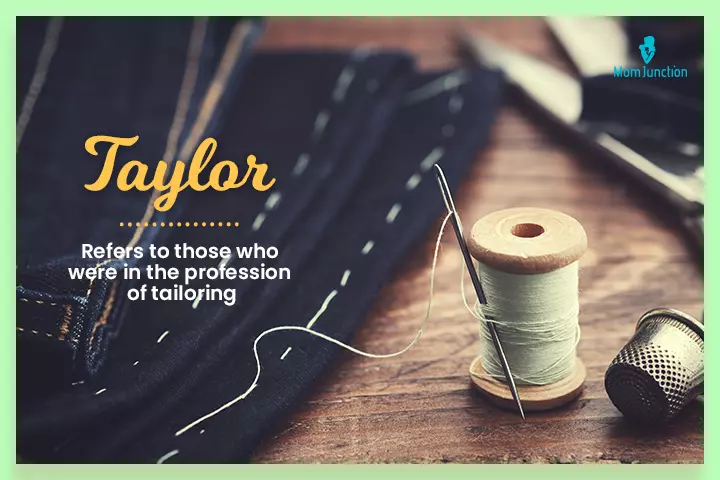
A surname derived from the Old French word ’tailleur,’ which means tailor. This surname is an occupational one for those who were originally in the profession of tailoring.
92. Thomson/Thompson
It means ‘son of Thomas.’ The name Thomas comes from the Old Greek name ‘Taoma’ meaning ‘twin.’
93. Walker
A Scottish and English surname, Walker has an occupational origin and refers to those who worked as a fuller or someone who is involved in fulling garments or clothes.
94. Watson
It is a patronymic name that means ‘son of Walter.’ The name Walter comes from Old German and means ‘ruler of the army.’ The name may have originally referred to someone who worked as a military general.
95. Watt
Watt originates from the Middle English birth name Wat or Watt, which is a diminutive form of the name Walter. The name Walter is from Old German, and means ‘ruler of the army.’
96. White
It is derived from the Middle English word ‘whit,’ meaning white. This surname would have been a pet name for an individual with a pale complexion or one with white hair.
97. Wilson
It means ‘son of William.’ The name William comes from the Old German name ‘Willahelm’ that means ‘willful protector’ or ‘valiant guardian.’
98. Williamson
It means ‘son of William.’ The name William comes from the Old German name ‘Willahelm’ that means ‘willful protector.’
99. Wood
It comes from Old English, and is a toponymic name for those who lived by a wood or forest. Wood could also be an occupational surname for those who worked as woodcutters.
100. Wright
It is an occupational surname that comes from the Old English word ‘wryhta’ that means a wright – someone who works as a craftsman.
Discover More Names
When you have to choose a name for your baby, a few hundreds of names may not be just enough. Keep digging our mine of baby names until you find that one precious gem.
Frequently Asked Questions
1. Why do Scottish last names start with Mc?
The prefixes Mc or Mac are of Gaelic origin and mean “son of.” Scots use this prefix to represent and identify the parentage of a person. Adding Mc or Mac to the father’s name might convert it into a family name. Some famous Scottish last names starting with Mc or Mac are McFarlane, MacAulay, MacRae, MacInnes, McAllister, and MacDougal.
2. Can you change your child’s last name in Scotland?
A parent or a guardian can legally change a child’s surname until the age of 16. If the parents are married, both are part of this procedure. However, only the mother can legally change a child’s name if the couple has separated (13).
3. When were surnames first used in Scotland?
During the 12th century, the upper society initially used surnames in Scotland. However, the need for surnames to demarcate between different social groups grew. The common fixed surnames were used around the 18th and 19th centuries (14).
Scottish surnames or last names depict an interesting historical background. Auchter, Craig, Elgin, Innes, or wood are toponymic last names, whereas Watson, Paterson, McMillan, and Ferguson are some patronymic (handed down from the names of male ancestors) surnames. Some may originate from the occupational backgrounds of their ancestors as well. For example, Bell, Faulkner, Miller, Taylor, or Wright. Interestingly, these last names are Anglicized forms of common Gaelic pet names. Some of these are gender-specific, while others may be used for both sexes.
Infographic: What Is The Naming Convention In Scotland?
Every country and culture has different naming conventions, and so is the case with the Scots. The Scottish people follow certain traditional norms when naming their babies. Let’s plunge into this infographic to get insights into the naming conventions in Scotland. Illustration: Momjunction Design Team
Illustration: Popular Scottish Surnames Or Last Names With Meanings

Image: Stable Diffusion/MomJunction Design Team
Discover the fascinating meanings and histories behind Scottish last names. Learn about the origins of your family name and its place in Scottish history.
Personal Experience: Source
MomJunction articles include first-hand experiences to provide you with better insights through real-life narratives. Here are the sources of personal accounts referenced in this article.
i.Robert L. “Hoot” Gibsonhttps://historycollection.jsc.nasa.gov/JSCHistoryPortal/history/oral_histories/GibsonRL/GibsonRL_11-1-13.htm
References
- What we do
https://www.nrscotland.gov.uk/about-us/what-we-do/#:~:text=National%20Records%20of%20Scotland%20(NRS)%20is%20a%20Non%2DMinisterial - Mythological History Identity Formation and the Many Faces of Alexander the Great
https://www.monmouthcollege.edu/live/files/709-mjur-i01-2011-2-mayerpdf - Surname of the Month – Anderson
https://www.shetland-fhs.org.uk/news/surname-of-the-month-anderson - Who Was King Arthur?
https://yalebooks.yale.edu/2019/01/28/who-was-king-arthur/ - Bell: Some Notes on the Surname’s Origins
https://www.jstor.org/stable/27696706?read-now=1&oauth_data=eyJlbWFpbCI6InByYXRpYmhhQG1vbWp1bmN0aW9uLmNvbSIsImluc3RpdHV0aW9uSWRzIjpbXSwicHJvdmlkZXIiOiJnb29nbGUifQ&seq=1#page_scan_tab_contents - Bran
https://godsandgoddesses.org/celtic/bran/ - Surnames: Their Origin and Nationality
https://upload.wikimedia.org/wikipedia/commons/4/48/Surnames%2C_their_origin_and_nationality_-_%28IA_surnamestheirori00mcke%29.pdf - Fergus
https://www.dib.ie/biography/fergus-a3048 - Macbeth of Scotland
https://www.newworldencyclopedia.org/entry/Macbeth_of_Scotland - Monarchs of Scotland with Corresponding English Monarchs
https://www.dunbardna.org/monarchs-of-scotland - Aodh
https://dmnes.org/name/Aodh - The Genealogy of the Morrison Origins in Scotland: A critical evaluation of the historical evidence for the origins of the Morrisons in Scotland
https://www.academia.edu/35563675/The_Genealogy_of_the_Morrison_Origins_in_Scotland_A_critical_evaluation_of_the_historical_evidence_for_the_origins_of_the_Morrisons_in_Scotland - Changing your name
https://www.citizensadvice.org.uk/scotland/family/birth-certificates-and-changing-your-name-s/changing-your-name-s/ - Explore your Scottish heritage
https://www.scotlandspeople.gov.uk/
Community Experiences
Join the conversation and become a part of our nurturing community! Share your stories, experiences, and insights to connect with fellow parents.
Read full bio of Madhurima Biswas
Read full bio of Shikha Thakur
Read full bio of Angela Alex





